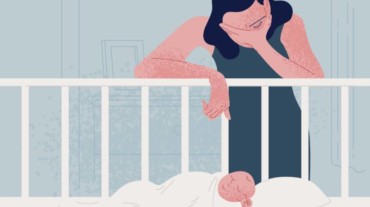
Is tubectomy safe? Will I lose my sex drive after getting sterilized? Is it painful to get it done? Will I put on weight after getting a tubectomy? Well, these are some common questions that hover in a woman’s mind, when she deliberates about getting a tubectomy.
The biggest reason is lack of awareness about the whole procedure. In fact, there are multiple cases where things have gone awry, because of lack of knowledge and after-care once the procedure is done.
Tubectomy is a surgical procedure to prevent pregnancy. The good thing is that it is safe, but you have to get it done from a qualified doctor. Once you are done, you have to take good care of yourself, otherwise there’s a high chance of things going wrong down there.
But that’s it ladies, because there are a lot of other things that you need to know about this procedure. And to help us understand everything, we have with us, Dr Veena Aurangabadwala, gynaecologist, Zen multispeciality hospital, Mumbai.
“Tubectomy can be defined as a permanent method of contraception, when it comes to women. It is a surgical procedure that is done to block the fallopian tubes, thereby preventing the egg released by the ovary from reaching one’s uterus,” explains Dr Aurangabadwala.

The primary aim of this surgery is to prevent the sperm from reaching one’s egg to fertilize it. Moreover, it is a permanent method of sterilization.
“Once you’re sure you’ve completed your family, and want a permanent mode of contraception, then this is the right time,” explains Dr Aurangabadwala.
A tubectomy is a permanent method of contraception and is hard to reverse. In some cases, women may ask to reverse the process after which, one will have to undergo surgery. But, you will be shocked to know that there is no guarantee about the success rate of this reverse surgery.
“Of course! One should avoid exercising vigorously, immediately after surgery. Do not resume work immediately, recover and then start gradually. Don’t forget to take the medication prescribed by the doctor. If you have fever or other symptoms like vomiting, severe abdominal pain, then consult a doctor,” advises Dr Aurangabadwala.

At times, pain, nausea, fatigue, dizziness, and abdominal pain are some of the symptoms that may occur after the procedure.
Select Topics of your interest and let us customize your feed.
PERSONALISE NOW“During the procedure, there are possible complications such as damage to the bowel, bladder, or major blood vessels. Furthermore, improper wound healing can lead to infection. Also, if the procedure fails then one can have an unwanted pregnancy. The failure rate of the tubectomy procedure, either done laparoscopically, hysteroscopically or through open surgery, is 2-4 %,” says Dr Aurangabadwala.